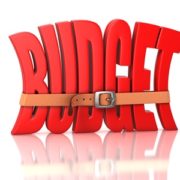2016 Federal Budget breakdown
In brief, here are 3 key areas handed down by Scott Morrison in the Federal Budget;
Health, welfare and aged care
Renting family home – when a person enters residential aged care and rents their former home, the house and rent will be included for assets and income testing when determining entitlement for an age and service pension. This will only apply to new residents entering residential aged care from 1 January 2017.
Disability Support Pension (DSP) – recipients will have their eligibility reassessed over the next three year to determine their continued eligibility.
Child and Adult Public Dental Scheme – will be available to children and adults covered by a concession card.
Medical Benefits Schedule – fees frozen under the previous budget are to be extended for a further two years.
My Aged Care contact centre – additional funding has been provided to support services provided by the My Aged Care contact centre.
Taxation
Personal tax rate – the income threshold at which the 37 per cent tax rate cuts in will increase from $80,000 to $87,000. This is due to apply from 1 July 2016.
Company tax rate – the company tax rate is currently 28.5 per cent for companies with turnover of less than $2,000,000, and 30 per cent for larger companies.
The budget proposes to progressively reduce the company tax rate to 25 per cent by 2026-27, and commencing from 1 July 2016 for companies with turnover of less than $2,000,000, their tax rate will reduce by 1 per cent to 27.5 per cent.
Small business – a small business is defined as one with annual turnover of less than $2,000,000. A number of concessions are available to businesses that fall within this definition, including a lower rate of company tax rate and simplified depreciation rules.
From 1 July 2016, the definition of a small business will be extended to businesses with a turnover of less than $10,000,000. However, for purposes of accessing the small business capital gains tax concessions, the current turnover threshold of $2,000,000 will be retained.
Unincorporated small business tax discount – currently receive a 5 per cent discount on the tax they pay. The budget included a proposal that will see this discount progressively increase to 16 per cent over the coming years. The discount will increase to 8 per cent from 1 July 2016.
| Financial year | Discount |
| 2016-17 | 8 % |
| 2017-18 to 2024-25 | 10 % |
| 2025-26 | 13 % |
| 2026-27 and future years | 16 % |
The maximum discount remains capped at $1,000.
Medicare levy surcharge and private health insurance rebate thresholds – effective from 1 July 2018, the indexation of the income threshold will be frozen for a period of three years.
Superannuation
This year’s announcements are probably the most significant since the superannuation reforms that took effect from 1 July 2007. Except for a couple of notable exceptions, the proposed budget changes will take effect from 1 July 2017, subject to being legislated.
Concessional superannuation contributions – Concessional contributions caps of $30,000, and $35,000 for people aged over 49 will continue for the 2015-16 and 2016-17 financial years. From 1 July 2017 the concessional contribution cap will reduce to $25,000 for all.
People with less than $500,000 in super who have not utilised all their full concessional contribution cap ($25,000) in a financial year will be able to carry forward any unused cap and make additional contributions in following years.
Unused concessional contribution amounts can be carried forward for up to five years.
Low income superannuation tax offset – Low income earners (people earning less than $37,000) currently receive a Low Income Superannuation Contribution (LISC) from the government of up to $500 to compensate for the 15 per cent tax paid on their superannuation guarantee contributions.
The current LISC is due to cease from 1 July 2017, but will be replaced with a new non-refundable tax offset of up to $500.
Low income spouses – from 1 July 2017, the current low income spouse superannuation tax offset of up to $540 will be enhanced with the income threshold for the spouse for whom a contribution is made, being increased from $10,800 to $37,000.
Contributions for older Australians – Superannuation contributions can only be made by people aged between 65 and 74 if they meet a ‘work test’ in the financial year in which contributions are made. The work test requires they be gainfully employed, or self-employed for a period of at least 40 hours, worked within a period of 30 consecutive days.
The intention is to remove the work test requirement thereby enabling older Australians to contribute to superannuation without having to meet the work test. This is due to apply from 1 July 2017. However, there is no change to allow people over the age of 74 to make or receive contributions to super, other than mandated employer contributions.
Tax deductibility of super contributions – currently a person may only claim a tax deduction for personal super contributions if they derive less than 10 per cent of their assessable income (+ reportable fringe benefits and reportable superannuation contributions) from employment.
The budget proposes that anyone under the age of 75 will be able to make tax deductible personal contributions, irrespective of their age or work status. This change is proposed to take effect from 1 July 2017.
However, consideration needs to be given to the concessional contribution cap, and any employer contributions that may also be made. Furthermore, a tax deduction for personal contributions cannot create a carried forward tax loss.
Non-concessional contribution lifetime limit – current limit is $180,000 per annum. The budget has proposed replacing the current non-concessional cap with a lifetime limit of $500,000.
Even though legislation has not been introduced, it is proposed this change will take effect from 3 May 2016. And, to complicate matters even further, any non-concessional contributions made since 1 July 2007 will be assessed against the lifetime cap.
Extension of tax on super contributions for high income earners – Australians earning more than $300,000 currently pay an additional 15 per cent tax on their concessional superannuation contributions, bringing the total tax rate to 30 per cent. This is referred to as ‘Division 293 tax’.
Effective from 1 July 2017, the threshold will be reduced from $300,000 to $250,000.
Super pension limitations – Money transferred to the pension phase of superannuation is concessionally taxed. That is, a superannuation fund pays no tax on the income it earns on investments that are supporting pension payments.
In the budget, the government announced restrictions will be placed on the amount that can be held in the pension phase of superannuation. The proposed limit is $1,600,000. Amounts in excess of this will need to either be withdrawn from super, or may be retained in an accumulation account with investment earnings being taxed at 15 per cent.
This proposal is retrospective in that people already drawing income from a pension that has a value of more than $1,600,000 as at 1 July 2017, will need to transfer the excess over $1,600,000 back to an accumulation account.
Anti-detriment payments – An anti-detriment payment is an additional benefit that may be paid from a superannuation fund on the death of a member, where the benefit is paid as a lump sum to an eligible dependent beneficiary. It is proposed that anti-detriment payments be abolished from 1 July 2017.
Transition to retirement pensions – It was expected that the budget would introduce restrictions on the use of pre-retirement, or transition to retirement (TTR) pensions. The approach the government has taken on TTR pensions was not as expected.
From 1 July 2017, the investment earnings derived by a super fund that is paying a TTR pension will not be tax exempt to the super fund. Investment earnings of the super fund will be taxed in the super fund at a rate of 15 per cent, instead of the current 0 per cent.
Conclusion
The initiatives announced in the budget are subject to successfully passing through parliament and with an election looming, the success of any of these making it through the legislative process is uncertain at this stage.
However, most of the initiatives announced do make sense despite what some commentators might have said. Certainly, a number of measures are on the harsh side, but we will have to live with those.
The key message at this point is to keep calm. With most of the announcements, we have over a year to digest the implications and develop alternative strategies, where appropriate.
Source: Treasurer Scott Morrison budget speech








